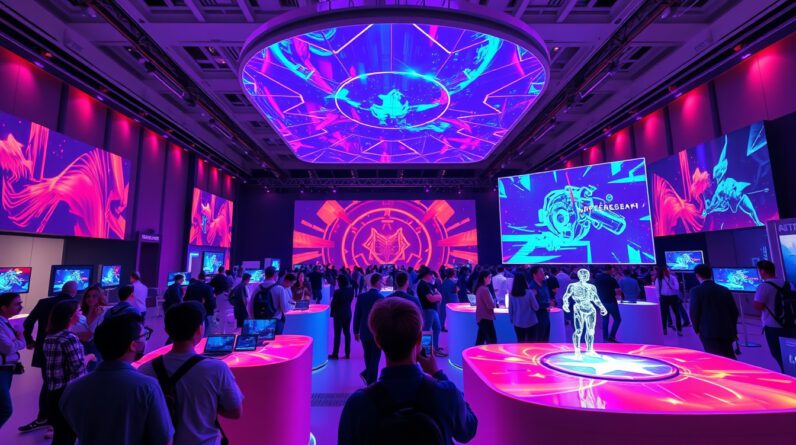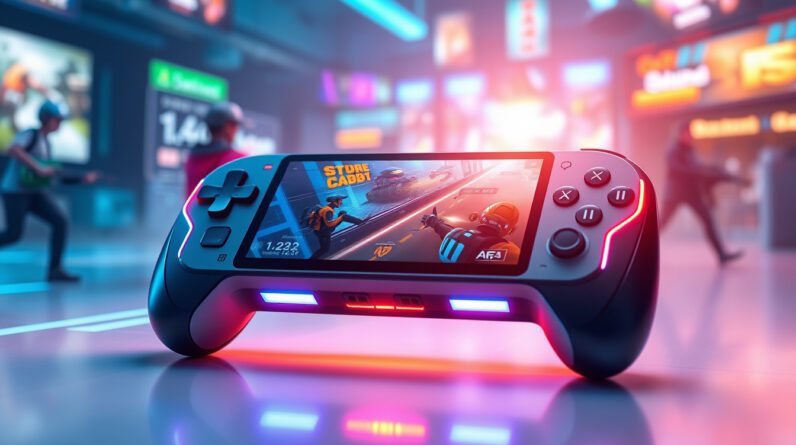In the high-stakes arena of technology, Samsung Electronics finds itself at a crucial crossroads as it faces pressing challenges posed by artificial intelligence (AI). Under the stewardship of its chairman, Lee Jae-yong, the company is called to adopt a bold ‘do-or-die’ mentality to sustain its leadership position in a rapidly evolving market. With formidable competitors like SK Hynix, which has recently secured a key relationship with Nvidia as its primary supplier for high-bandwidth memory (HBM) chips, Samsung’s dominance in the memory-chip segment is under intense scrutiny. The company’s recent decline in operating profit, coupled with increased investments in research and development, highlights the urgency of rejuvenating its approach to innovation and long-term strategic planning. This article explores the challenges Samsung faces in the AI landscape and how Lee’s forward-thinking leadership aims to navigate the company through uncertain waters.
Takeaways
- Samsung’s chairman, Lee Jae-yong, emphasizes a ‘do-or-die’ mentality to tackle AI challenges.
- The company faces stiff competition from SK Hynix in high-bandwidth memory technology essential for AI.
- Lee advocates for long-term investments to ensure Samsung’s resilience despite short-term profit declines.
The AI Competition Landscape: Challenges Facing Samsung
As the landscape of artificial intelligence (AI) rapidly evolves, Samsung Electronics finds itself at a critical juncture, urged by its chairman, Lee Jae-yong, to embrace a ‘do-or-die’ mentality. This call to action comes in response to mounting challenges, particularly from rival SK Hynix, which has ascended to become Nvidia’s primary supplier of high-bandwidth memory (HBM) chips—crucial components in AI graphics processing units (GPUs). Despite its standing as the world’s largest memory-chip manufacturer, Samsung is grappling with a crisis that threatens its technological competitiveness and long-term viability. In a recent executive training session, Lee highlighted the crucial role of attitude in navigating through crises and advocated for sustained long-term investments, even if they come at the cost of short-term profits. Samsung’s operating profit has plummeted by nearly a third in the past quarter, a decline linked to heightened expenditures on research and development. Additionally, following a legal resolution concerning past merger-related issues, Lee has acknowledged public concern regarding Samsung’s future, committing to face the impending challenges directly while aiming to cultivate a culture of resilience within the company. As Samsung moves forward, its ability to adapt to the AI competition landscape may very well dictate its success in the upcoming years.
Leadership Strategy: Embracing Long-Term Investment for Survival
In light of these challenges, Samsung Electronics is actively recalibrating its leadership strategy to prioritize resilience and long-term investments. Emphasizing innovation, the company has committed a significant portion of its resources towards advancing its semiconductor technologies, particularly in AI-driven applications. This strategic pivot not only aims to bridge the gap with competitors like SK Hynix but also seeks to redefine Samsung’s role within the broader tech ecosystem. Lee Jae-yong’s assertion that a robust attitude can transform crisis into opportunity is central to this overhaul; it reflects a belief that sustainable growth and technological supremacy can be achieved through perseverance and forward-thinking initiatives. As the landscape continues to shift, Samsung’s focus on nurturing its research capabilities illustrates a critical understanding that true success lies in investments that may not yield immediate returns, but promise enhanced competitive positioning in an increasingly AI-centric future. Ultimately, the effectiveness of this strategy will be put to the test as the global demand for AI solutions intensifies, compelling companies to innovate swiftly.




